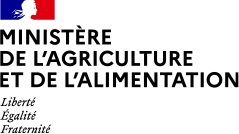Document type : Press release from the French Ministry of Agriculture and Food
Authors: Julien Denormandie's Press Office, Ministry of Agriculture and Food Press Office
Preview: The French Ministry of Agriculture and Food has published a ministerial order and a technical informative note specifying the circumstances under which the castration of male domestic pigs may be carried out on farms, other than for therapeutic or diagnostic purposes.
Improving animal welfare on farms is a government priority. The Minister of Agriculture committed in 2020 to end the live castration without anaesthesia of piglets by the end of 2021. A first decree was then signed in February 2020 to ban castration without anaesthesia from 1 January 2022 and to regulate the practice of castration by requiring pain management for the piglets.
The DGAL technical guidance specifies the ways in which the ban is to be implemented. Thus, from 1 January 2022, if they opt to continue surgical castration, owners of domestic male pigs and their employees will have to carry this out following new methods of pain management. In order to provide technical support to farmers and veterinarians, the Ministry of Agriculture and Food has therefore published online, via the Ifip - Institut du Porc website (https://www.ifip.asso.fr/fr/centre-de-ressources-castraanimal welfare):
- protocols for local anaesthesia and analgesia in the form of information sheets, which have been produced in consultation with scientists and professionals and are the outcome of agreement between the stakeholders,
- articles detailing the evidence base used to produce the protocols
- and the legal regulatory texts.
To complement the guidance, a distance learning module will be published at the end of November, co-produced by the Ifip and the SNGTV (Société nationale des groupements techniques vétérinaires) at the request of the DGAL. On-site practical training by health veterinarians will complete the available support. A technical instruction specifies the system.
Over and above the practical implementation of the new castration protocols, the generalised success of the legal end to the live castration of piglets on 1 January 2022 depends on provisions made to deal with the additional costs that these methods entail for farmers.
The ministerial decree, founded on the legal regulation of animal welfare, accordingly makes provision for the economic security of farmers. Castration will in fact be conditional either on participation in a quality certification labelling scheme or on the signing of an Egalim2 contract that guarantees that production costs will be taken into account. The exceptions permitted under the Egalim2 Act also apply: direct sales, small-scale farmers, etc. It thus reinforces the provisions of the Egalim2 Act with regard to compulsory contractualisation. In particular, contracts will serve as the basis for commercial negotiations and will make it possible to take production costs into account and, therefore, the additional costs associated with castration.
Press release giving rise to an article in Le Parisien on 19 November 2021: Bien-être animal : fin de la castration à vif des porcelets dans les abattoirs, un cahier des charges plus strict






